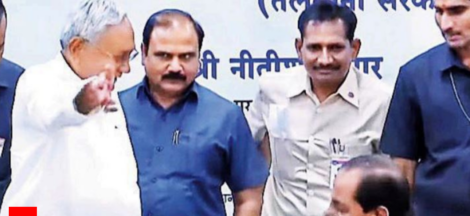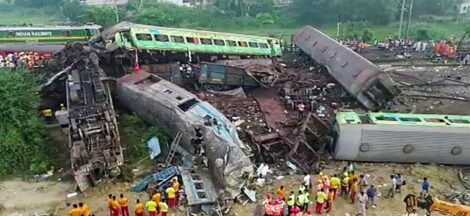By Sankar Ray
Balochistan
is on the boil, encircled with evil signs all around. The coalition government,
led by the Balochistan Awami Party with Jam Kamal Khan as the chief minister,
faces an existentialist crisis.
The crisis was triggered with a tweet
from the BAP senator Kahuda Babar in the very first week of the new year,
suggesting bluntly that the CM quit the post as Kamal was facing an intra-party
coup. A week thereafter, Balochistan National Party-Mengal president Sardar
Akhtar Mengal was seen at the Quetta airport ‘confabulating’ with Balochistan
assembly speaker Quddus Bizenjo, who has been alleged to discreetly toppling
the Jam government. However, the move seemed abortive as BAP candidate Manzoor
Kakar was through in the by-election for a vacant Senate seat. Kamal scotched
the rumour about an internal coup, although BAP remains structurally brittle
with bitter factionalism.
The
BAP coalition government continues to be shadowed by an opaque uncertainty as
the Balochistan legislature has a formidable opposition with 24 MPAs-just nine
short of forming a government of BNP-Mengal and Jamiat Ulema Islam-Fazl . The
ruling party has 20 members (15 directly elected) in the 64-member but
supported by 21 legislators representing Awami National Party and the Pakistan
Tehreek-e-Insaf inter alia. In the 11-member cabinet are one each from ANP and
the PTI- the rest from BAP, including a couple of independent members who
joined the ruling party.
The
reigning coalition seems inadequately concerned about the elongating ‘queues of
death’ in coal mines, crossing 1,000 during the last 18 years, thanks to the
pathetic tradition of callous governance . The latest is at a colliery in Dukki
district with three miners having succumbed to collapse due to gas explosion.
Three others remain trapped at the explosion site, awaiting rescue efforts. In
the same colliery four workers had died in a similar accident this month
itself. Dukki is rich with high quality coal and the extraction rate is the
highest in the country. Miners are mostly ethnic Pashtuns and collieries are in
private hands who trample statutory obligations on miners’ safety and health
under foot.
Coal
mining in Pakistan – not only Balochistan but Punjab too- has been historically
fraught with hazards. There are asphyxiation, gas poisoning, roof collapse,
rock burst, gas explosions and a plethora of lung diseases like coal worker’s
pneumoconiosis, known as black lung disease.
Pakistan
Mine Workers Federation staged a protest demonstration in the second week of
January in Quetta and squarely blamed the provincial government for apathetic
attitude. During the last three years 315 mine workers were killed and in 2918
alone 98 coal miners had lost their lives in harness. “Despite the incidents,
coal mine workers are compelled to work under an Act established during British
rule while the contractor system in coal mine industry should be purged out
from Balochistan,” said Muhammad Zameen, a top trade union leader in coal
industry, who demanded that allotment of hazardous coal mines be scrapped.
The
state of humanimalisation among Pashtun miners and the lack of political
assertiveness among Baloch leaders in fetching legitimate financial allocation
from federal authorities aggravate political uncertainty. Which was why
Balochistan was left out in China-Pakistan Economic Corridor projects.
But
none other than the Chief Justice of Pakistan Mian Saqib Nisar lamented that
the situation of Balochistan remained deplorable despite being rich in mineral
resources. The Baloch are deprived of basic rights, he added. Several years back,
former Pak Ambassador to the USA Hussain Haqqani criticised the
‘miltablishment’ in Islamabad, ‘The ethnic Baloch areas have a greater sympathy
for nationalists who would like to see either an independent or autonomous
Balochistan. The army tries to suppress them, sometimes with the help of
religious extremists”.
It is
time to evade the federal responsibility of treating the Baloch people on par
with the Pakistanis in Punjab and Sindh by accusing Afghanistan and India for
the Baloch insurgency against the Pakistani state for several decades – albeit
at a low-level.
(IPA
Service)
The post Balochistan Bleeds Amidst Political Uncertainty appeared first on Newspack by India Press Agency.


